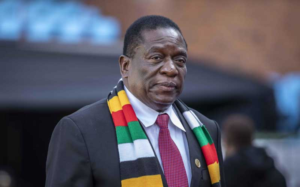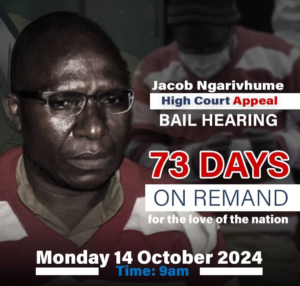ZIMBABWE’S STRUGGLE FOR FREEDOM: A NARRATIVE OF UNFULFILLED PROMISE

Despite a hard-won battle for independence that promised the dawn of democracy and civil liberties, Zimbabwe remains ensnared in the grips of an authoritarian regime. The southern African nation, a constitutional republic on paper, continues to grapple with political repression that belies its democratic aspirations.
The nation’s journey has been fraught with challenges. From its days as a British colony to a protracted liberation struggle, Zimbabwe achieved independence in 1980 under the leadership of Robert Mugabe. This period was marked by a collective sigh of relief and a hopeful outlook towards a free and prosperous future. However, the reality that unfolded has been starkly different, painting a grim picture of unmet promises.
At the heart of Zimbabwe’s woes is a political system that, despite its veneer of democracy, operates much like an autocracy. The ruling government, initially under Mugabe and now under President Emmerson Mnangagwa, has been characterized by its tight grip on power, often at the expense of the very freedoms for which the liberation struggle was fought. Political repression, economic mismanagement, and corruption have become hallmarks of the regime, leaving the populace longing for the democratic ideals that once seemed within reach.
A recent incident underscores the ongoing struggle for basic civil liberties in Zimbabwe. On June 16, former opposition minister and Member of Parliament, Jameson Timba, along with 78 others, was arrested for hosting a private meeting to discuss youth issues over a braai, a traditional Southern African barbecue. This gathering, meant to engage and empower the youth, was deemed a threat by the authorities, leading to their arrest.
The charges against Timba and the attendees revolve around violating their freedom of assembly, association, and expression—fundamental rights that are enshrined in the Zimbabwean constitution but are routinely flouted by those in power. The incident is not an isolated one but part of a broader pattern of suppressing dissent and stifling any form of opposition to the ruling government. Such actions are indicative of a regime that fears losing control and resorts to autocratic measures to maintain its hold on power.
The implications of these repressive actions are profound, not only for the individuals directly affected but also for the broader societal fabric. The suppression of free assembly and expression creates an atmosphere of fear and distrust, stifling democratic engagement and civic participation. It discourages the youth and other societal segments from actively contributing to national discourse, thereby hindering progress and innovation.
Furthermore, the arrest of opposition figures and civic leaders sends a chilling message to anyone who might think of challenging the status quo. It reinforces the perception of an unchangeable political landscape, where power remains concentrated in the hands of a few. This is antithetical to the principles of democracy and good governance, which advocate for accountability, transparency, and the rotation of power.
As Zimbabwe continues to navigate its complex political landscape, the international community remains watchful. There have been calls for sanctions and diplomatic interventions to press the Zimbabwean government to uphold human rights and democratic norms. However, the effectiveness of such measures has been mixed, with the ruling elite often portraying them as foreign interference in domestic affairs.
The plight of Jameson Timba and the 78 other detainees is a stark reminder of the long road ahead for Zimbabwe in achieving the democratic ideals it once fought for. For the citizens of Zimbabwe, the struggle continues – not just against external forces but against an internal regime that seems determined to hold onto power at all costs. The hope for a truly free and democratic Zimbabwe remains alive, but it is tempered by the realities of a nation still searching for the fulfillment of its foundational promises.



